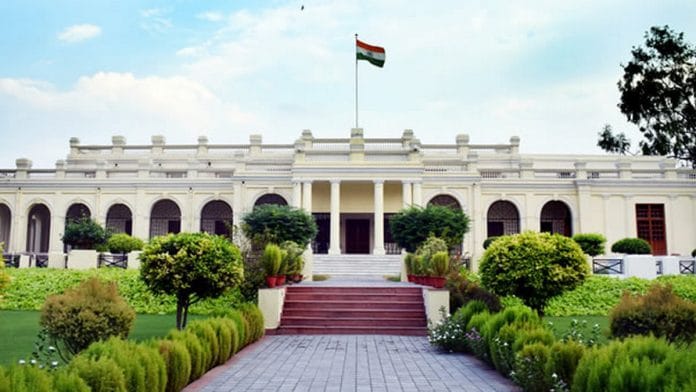New Delhi: Delhi University (DU) Monday stuck to its stand on allowing undergraduate admissions to colleges only on the basis of the Common University Entrance Test (CUET), including in minority institutions, and wrote to St Stephen’s College to take down its admission prospectus and “align its admission policy with that of the university”.
The university stressed that it would nullify admissions if guidelines were violated.
DU and the prestigious St Stephen’s have been at odds over the admission process since April, when the minority institution (50 per cent seats reserved for Christians), released its prospectus for the 2022-23 session, according 85 per cent weightage to the CUET score and 15 per cent to physical interviews for all categories of candidates.
The CUET was initiated by the University Grants Commission (UGC) for admissions to all central universities from 2022-2023. The exam aims to give equal opportunity to all students via a common entrance test.
DU, while adopting the CUET in March this year, had asked all its constituent colleges to use the common exam as the single mode of admission. The new process had no room for interviews or any personalised assessment by individual colleges.
The university pointed out the same in its latest letter to St Stephen’s — that the CUET is a standardised test that eliminates scope for discrimination.
“Any admission done in violation of the admission norms and policies of the university will not be recognised and treated as null and void ab initio,” DU wrote in its letter Monday. “… It is expected that the college align its admission policy with that of the university.”
The university had earlier written a letter on 24 May asking the college to take down its prospectus.
DU Registrar Vikas Gupta told ThePrint that the university has “taken the response given to us by St Stephen’s College on 24 May”.
“We have consulted legal experts and education experts and furnished our response explaining our stand which is supported by various judgments. We hope that the college abides by the directions of the university.”
St Stephen’s Principal John Varghese said “as of now, we are going to abide by the admission prospectus put up on our website”. “If any changes are made in our admission process, it shall be updated on the website accordingly,” he told ThePrint.
Also read: Delhi University to allow former students a chance to complete their final exams, obtain degrees
The bone of contention
In its letter, DU said St Stephen’s “would appreciate that adding a score based on interview to the score which has already been obtained through a standardised, statistically-robust procedure, .i.e., CUET-UG would introduce subjectivity to the admission process and eventually lead to discrimination, which is not desirable”.
St Stephen’s College, whose establishment predates that of DU, has so far chosen to stick to its own admission rules, which include an interview component.
When the college released its admission prospectus for undergraduate admissions for 2022-23, it specified that the National Testing Agency-conducted CUET would only have a weightage of 85 per cent for all categories. The college claimed it could do so because of its minority status.
In its 24 May letter, DU agreed to permit St Stephen’s to conduct interviews and accord 15 per cent weightage to the same for reserved category students (50 per cent), but not for the rest.
In its response, the college wrote to DU Thursday asking that the university reconsider its decision.
In 1980, questions were raised on the minority status of the college, its personal interviews, and whether it is allowed to set aside seats for Christians, and a case was taken up in the Supreme Court.
A judgment issued by the court in 1992 said “it did not see any arbitrariness nor any vice or lack of scientific basis in the interview or in the selection process and that the college seems to have compelling reasons to follow its own admission programme”.
On the SC order, DU said in its Monday letter: “The judgment passed in 1992 by the honourable Supreme Court upholding the admission procedure was in the context of admission of applicants based on marks obtained in qualifying examinations of ‘different institutions of diverse standards’. In view of developments with regards to CUET, the judgment has no relevance in the changed facts and circumstances.”
(Edited by Nida Fatima Siddiqui)
Also read: Delhi University at 100: Staging ground of history, scholarly success & coffee-shop romances






